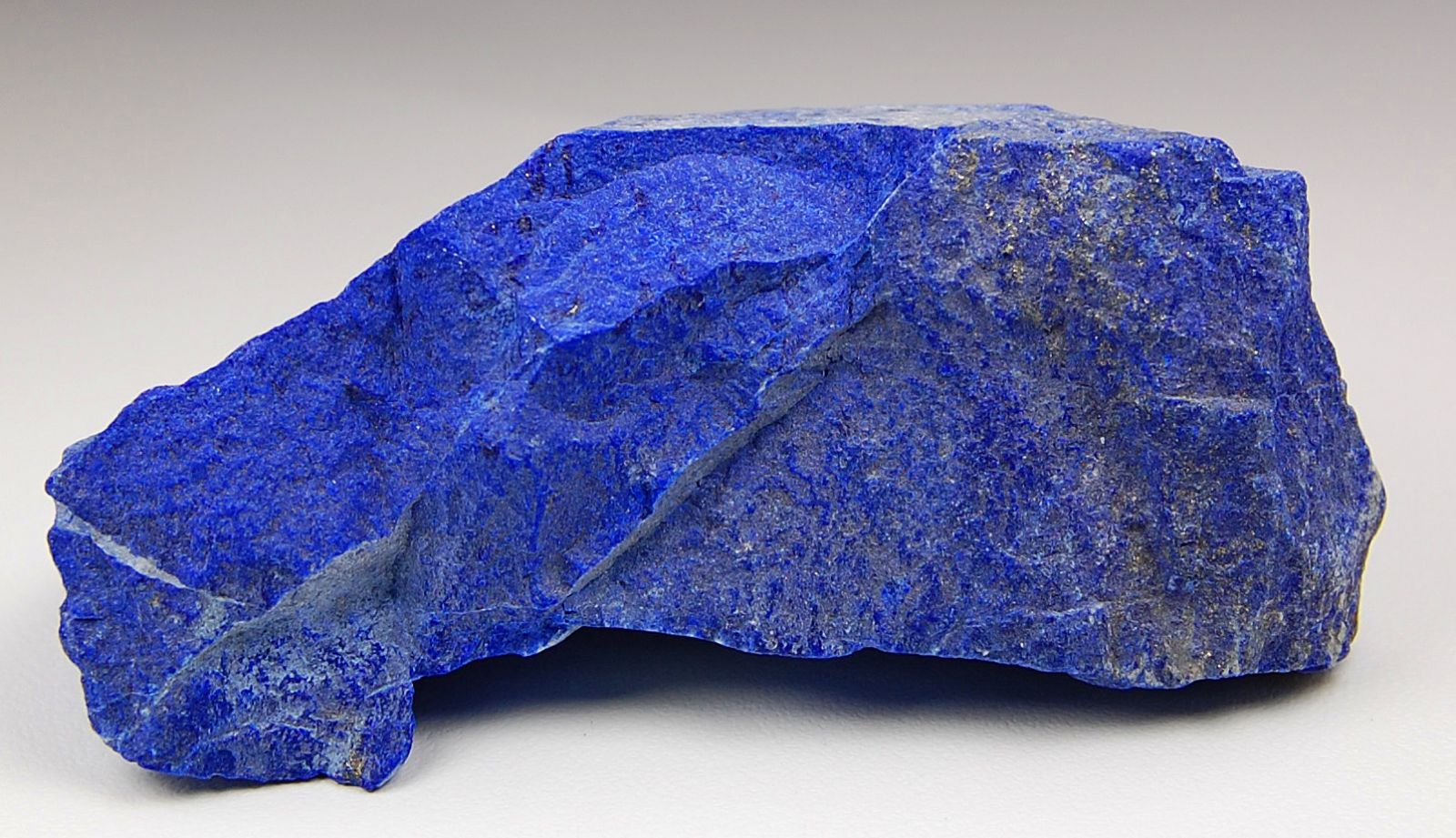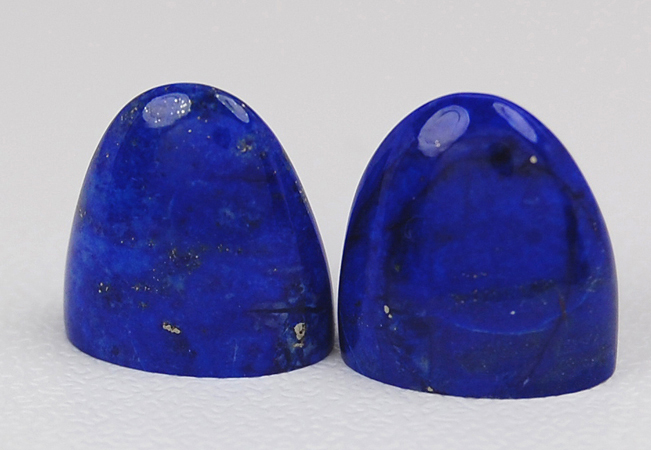

Introduction: Lapis lazuli is a rock composed of lazurite, calcite and pyrite. It may also contain hauyne, sodalite and nosean with small amounts of diopside, augite, mica and hornblende. Pictured above is a rough piece from Badakhshan, Afghanistan weighing 180 grams and a matched pair of "tongue" cabochons weighing 15.19 ct.
Colors: semitranslucent to opaque, medium to dark greenish blue to purplish blue, often veined or flecked with brassy colored pyrite and/or white calcite
Stone Sizes: Rough blocks of material can be in excess of 100 kg. Lapis lazuli is typically cut as carvings, cabochons, beads, inlays or tablets.
Localities:
-Badakhshan, Afghanistan: source of the finest lapis and among the oldest operating mines in the world (over 7000 years).
-Chile: gray and blue mixture from the Andes but the color is inferior to the Afghan material
-Mongolia: light blue lapis with pyrite flecks
Treatments:
-Commonly dyed (D) to improve color and hide calcite.
-It is also commonly impregnated or oiled (O) with paraffin or oil to make the polish appear better and also to seal the dye.
Gemology:
-Refractive Index: vague readings around 1.50 and sometimes 1.67 (due to calcite)
-Birefringence: None
-Optic Character: AGG, if not opaque
-Specific Gravity: 2.75 (+/-0.25), varies depending on mineral content
-Hardness: 5 to 6; varies with impurities
-Toughness: fair
-Chemical Composition: varies with mineral content
-Cause of Color: sulfur related color centers
-Fluorescence: weak to moderate green or yellowish-green (SW); calcite inclusions may fluoresce pink (LW)
-Absorption Spectra: not diagnostic
-Cleavage: None
-Phenomena: None
Name: Lapis lazuli is from the Persian word, lazhward, meaning blue.
Dates: It was an old birthstone for the month of December up until 1958 and is the gem for the 9th wedding anniversary.
Care: The ultrasonic is risky and the steam cleaner should never be used. Warm, soapy water is safe.
To see available lapis lazuli, click here. (None currently available)